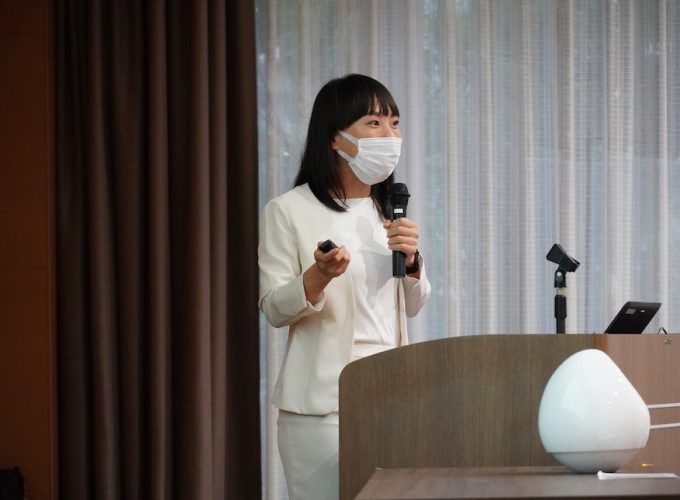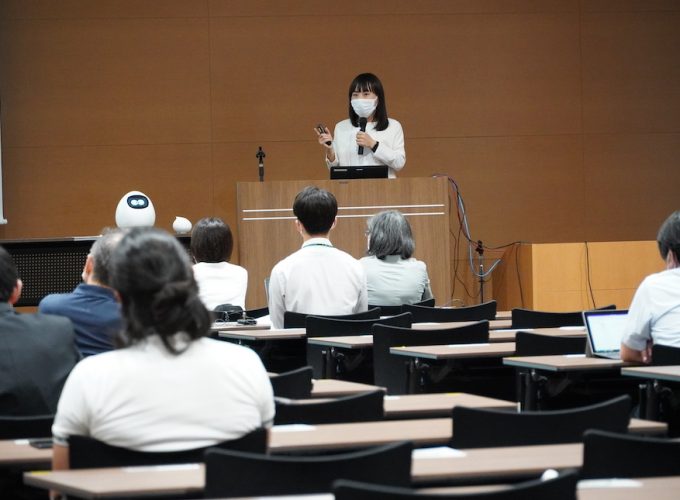Dr. Zilu Liang Gives Lecture at KUAS Kizuna Research Symposium
Jul 7, 2023
EngineeringOn July 5, 2023, the first KUAS Kizuna Research Symposium of fiscal year 2023 was held at KUAS Uzumasa Campus. The theme of the symposium was “How to Make a Diverse Society: Considering Support for People with Developmental Disabilities”.
Following the theme, Dr. Zilu Liang from the KUAS Faculty of Engineering conducted a lecture titled “From Serious Games to Wearables: Supporting People with Development Disorders with AI-empowered Ubiquitous Computing Technologies”. Dr. Liang noted that she was excited to prepare for this lecture, as her research deals with ubiquitous computing but has not yet explored how such technology can be applied to aiding those with developmental disorders.

In her lecture, Dr. Liang introduced computing technologies that can be used to help those with developmental disorders. One of those technologies is VR. From the abundant amount of virtual reality technology that has been developed to help children with developmental disorders improve their social communications skills, Dr. Liang spoke about the “Virtual Reality Cognitive Training System”. This guided therapy system improves one’s emotional recognition skills and ability to collaborate with others through multiple sessions in which the patient is placed in various social simulations in a virtual environment and has their reaction monitored and responded to by a clinician. Another form of computing technology introduced by Dr. Liang was gamification mobile applications, which leverage the game elements to motivate the user to achieve something positive, such as a change in social behavior. Similar to VR, these applications can aid in learning to identify and express emotions in a social context. Such applications make use of tangible UI and technology that can recognize and utilize the user’s emotions.

Following the main portion of her lecture, Dr. Liang then offered her opinion on where the systems discussed can make improvements in the future, such as establishing system design principles tailored for ASD patients, adding more features to applications, running experiments with larger sample sizes, and making quantified comparisons between digital and traditional methods of intervention. Dr. Liang ended her lecture by fielding questions and comments from the audience.